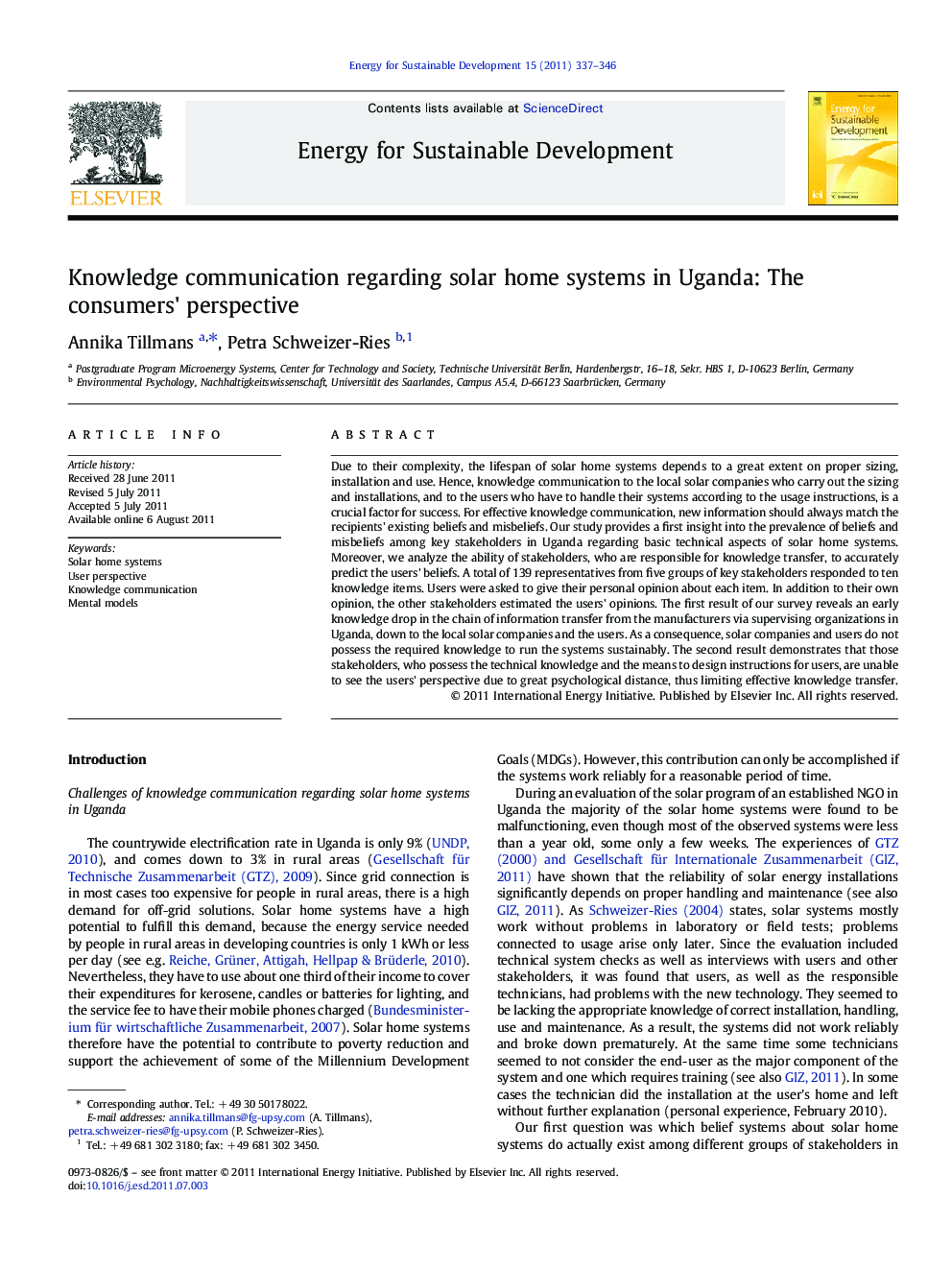| Article ID | Journal | Published Year | Pages | File Type |
|---|---|---|---|---|
| 1047010 | Energy for Sustainable Development | 2011 | 10 Pages |
Due to their complexity, the lifespan of solar home systems depends to a great extent on proper sizing, installation and use. Hence, knowledge communication to the local solar companies who carry out the sizing and installations, and to the users who have to handle their systems according to the usage instructions, is a crucial factor for success. For effective knowledge communication, new information should always match the recipients' existing beliefs and misbeliefs. Our study provides a first insight into the prevalence of beliefs and misbeliefs among key stakeholders in Uganda regarding basic technical aspects of solar home systems. Moreover, we analyze the ability of stakeholders, who are responsible for knowledge transfer, to accurately predict the users' beliefs. A total of 139 representatives from five groups of key stakeholders responded to ten knowledge items. Users were asked to give their personal opinion about each item. In addition to their own opinion, the other stakeholders estimated the users' opinions. The first result of our survey reveals an early knowledge drop in the chain of information transfer from the manufacturers via supervising organizations in Uganda, down to the local solar companies and the users. As a consequence, solar companies and users do not possess the required knowledge to run the systems sustainably. The second result demonstrates that those stakeholders, who possess the technical knowledge and the means to design instructions for users, are unable to see the users' perspective due to great psychological distance, thus limiting effective knowledge transfer.
► Knowledge transfer to technicians and users is crucial for sustainable solar systems. ► We revealed an early knowledge drop in the chain of information transfer. ► Thus, technicians and users lack relevant knowledge to run the systems sustainably. ► In order to be effective, new information should always match the recipients' existing beliefs. ► Stakeholders' inability to anticipate the users' beliefs limits knowledge transfer.
